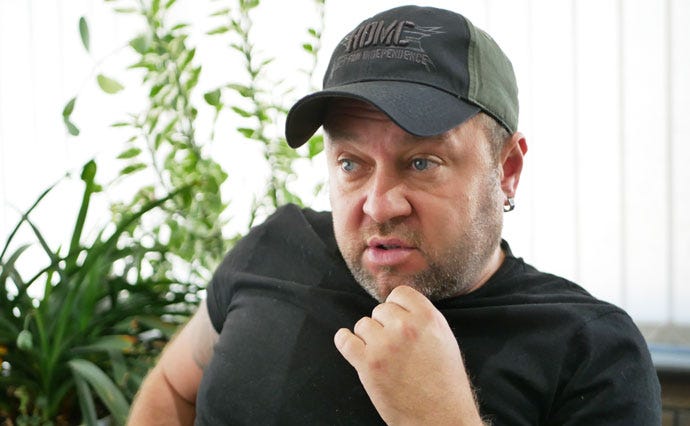Zelensky 2003-2013: rise of the Kvartal comedy empire
Ronald Lauder and Ronald Reagan. Zelensky's skit about the Israeli doctor. Rodnyansky, Khoroshkovsky, and Kolomoisky. Russo-Ukrainian show business and money business
Last week, we learned about Zelensky’s youth and the emergence of his Kvartal 95 comedy group. Today, we will go into the period when he truly came into his own as the Joker of Ukrainian politics. It will involve everything from Zionist American media investor Ronald Lauder to the larger than life Ukrainian oligarch Igor Kolomoisky. Strap in for a ride through Ukraine’s roaring 2000s.
Why should you care? For one, given all the complex intertwinements between Russian and Ukrainian politics and show business the reader is about to encounter, one will be hardly surprised to hear that one Ukrainian MP declared a few days back that Zelensky’s government has been conducting constant secret negotiations with Russia ever since 2022. Zelensky’s list of contacts is endless.
We left Zelensky’s path at the end of the 1990s. He’d already made a name for himself in the post-soviet comedy world, but he and his Krivoy Rog colleagues were frustrated by their inability to win the ‘Club of the Happy and Inventive’ (KVN) comedy cups judged in Russia. In response, they focused more on the Ukrainian market.
This was a good time to do so. As I wrote here, it was in the late 1990s and early 2000s that President Leonid Kuchma essentially created modern Ukraine. He oversaw the centralization of economic power among a small group of eastern Ukrainian oligarchs. Though himself a soviet-era ‘Red Director’ that had hitherto managed Dnepropetrovsk’s famous Yuzhmash rocket factory, he would side alternatively with the Dnepropetrovsk and the rising Donetsk clans.
A new political landscape was settling in the country. Complex patronage networks and rent-seeking schemes, macabre violence (Kuchma was famously implicated in the decapitation of a critical journalist), and confusing geopolitical intrigues between east and west. In short, the Ukraine we all know and love.
Such a world of divided loyalties lends itself quite well to irony and satire. In 2003, Zelensky’s existing ‘95th kvartal’ comedy team created the structure that lives on to this day – ‘Kvartal 95 studio’. Alexandr Pikalov, one of Zelensky’s closest associates in the project, recalls how political satire lay at the origins of Kvartal:
By that time, we had a base from the KVN —we were doing what we knew and what interested us. The televised "Kvartal” began with a conflict with the KVN leadership. It wasn’t even a conflict, just a very loudly slammed door that eventually flew off its hinges—our departure from KVN. After that, we decided to go to Kiev and do what we wanted. Our first televised concert was both a snapshot and a starting point. A snapshot of who we were and what we had, and a start—the beginning of our new path. Everything went quite successfully, both in terms of ticket sales and audience feedback. Moreover, the TV channel wasn’t afraid to air our experiment. And the second starting point came when we introduced political satire—this happened a year after the first concert. We created parody sketches on political topics. For example, in America, this was already very popular at the time.

The reference to America is surely not incidental. Is it not a stretch to propose that political satire represents something deeply American? The marketisation of the world also means the devaluation of politics. Transformed into lobbying battles, politics become only worthy of satire. In turn, the public’s main political privilege is to laugh at politicians, rather than meaningfully engage in politics.
Keep reading with a 7-day free trial
Subscribe to Events in Ukraine to keep reading this post and get 7 days of free access to the full post archives.



